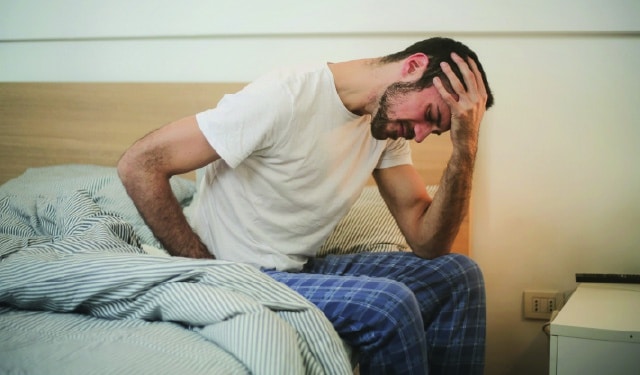Yesterday afternoon I screened Arthur, a young man who will be coming in for an alcohol detox this morning.
He is very successful, surrounded by supportive family and friends, and — aside from the fifth of liquor he drinks every day, starting with a few snorts each morning to stop the shaking — a healthy specimen. He has been drinking regularly since age 15, which culturally-speaking, is the norm in his world.
He has never had a problem with the law. Astonishingly, he has never had a DUI (but I wouldn’t be surprised if he had some ‘friends in high places’ who could have helped with that if it ever did arise).
Signs of a Drinking Problem
It’s the early morning shaking, the racing heart, the weird sensations of numbness in his limbs that start about six hours after his last drink that finally convinced Art he might have a drinking problem.Even with all the physical evidence confronting him, the idea of never drinking again is terrifying for him. It is so much a part of his life, his very identity.
Mark Nepo says, “When facing what’s ours to face, we’re surprised to learn, time and again, that under what seems unbearable is the rest of life waiting to be lived.”
You Must Make the Decision to Stop Drinking
How I wanted to pour out success stories to this guy of all the amazing people that have come and gone through the Coleman Institute over the years and have found the bliss that comes from relieving themselves of the burden of their dependence on alcohol! The freedom of finding emotional sobriety, peace of mind, and physical wellness is profound.But giving up alcohol is a process, and Dr. Coleman taught me years ago that I can’t work harder than my patient on their sobriety. First the decision must be made, the drinking must stop, and then slowly the new reality unfolds.
“Art, there are so many doors that are going to open for you,” was the simple message I gave him during our call. “Come tomorrow and take the first step.”
When to Seek Medication-Assisted Treatment
Not everyone needs a medical detox off alcohol, and it is important that you check with your doctor before attempting to stop on your own. This fellow absolutely needs to be in a safe environment.When asked if he had ever had Delirium Tremens (DTs) or a seizure when he stopped drinking, he replied that he didn’t know, because he had never gone more than a few hours — especially in the last several years — without a drink. But the fact that he now needs a drink to stop the shakes in the morning is indicative of needing medical assistance.
Outpatient Detox Programs to Fit Your Life
At the Coleman Institute for Addiction Medicine, our patients spend the first day of their outpatient alcohol detox in a private room with the support person of their choice. We check labs and do an EKG, and throughout the day our patients receive medication through an IV to prevent seizures and other complications of abrupt alcohol cessation. Needless to say, we are on heightened precautions due to COVID-19, and protocols for patient and staff safety are woven throughout the visit.Medications used for the rest of the program are delivered to our office during the detox, and the patient’s support person is given explicit instructions on how to administer them. A very nice lunch is provided from a selection of local restaurants.
Our office specializes in using long acting naltrexone for people desiring to stop drinking alcohol. It will cut down on the cravings, pleasure, and impulse to drink for most people. We also prescribe disulfiram as a deterrent to drinking alcohol.
Custom Alcohol Detox
The Coleman Institute staff will work with Arthur to create a plan for continued sobriety. This will take into account his availability and preferences, and the level of support he needs now with the idea of continued reassessment.Eric Zimmer, host of the podcast The One You Feed says, “Being sober is amazing. Getting sober sucks.” As Arthur’s body begins its physical healing process from the alcohol onslaught, his needs will turn more and more towards finding what life holds for him, unaccompanied by alcohol. Being in a place of acceptance to the myriad of resources available to anyone who wants to be sober is very fertile ground. I believe Arthur is well positioned to begin to explore and open these treasures.
If you or a loved one is concerned about stopping drinking on your own, please schedule a callback today.
Joan R. Shepherd, FNP


